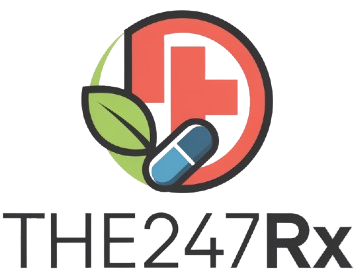 Prolonged acne is incredibly frustrating when the conventional treatment doesn’t help. If you’ve been suffering from severe acne, then you’ve probably heard about isotretinoin (or Isotrenom).
Prolonged acne is incredibly frustrating when the conventional treatment doesn’t help. If you’ve been suffering from severe acne, then you’ve probably heard about isotretinoin (or Isotrenom).
The drug has a reputation for being revolutionary but what is really going on with isotretinoin? We’ll take a look at its pros and cons so that you can make an informed choice.
What is isotretinoin?
Isotretinoin is a potent oral medication derived from vitamin A, primarily prescribed for severe cystic acne that hasn’t responded to other treatments.
It works by reducing the size and activity of sebaceous (oil) glands in the skin, leading to decreased oil production, which helps prevent acne formation.
The upsides of isotretinoin
It has a high success rate
Isotretinoin is often hailed as one of the most effective treatments for severe acne. Studies indicate that about 90% of users experience significant improvement, with many achieving long-term remission after completing a course.
Used properly, isotretinoin has a success rate approaching 90%, and in the majority of cases, the results persist for life (Ups and Downs of Accutane: Northwest Dermatology Group)
It addresses multiple causes of acne
 Unlike treatments that target a single factor, isotretinoin tackles several acne contributors simultaneously:
Unlike treatments that target a single factor, isotretinoin tackles several acne contributors simultaneously:
- Reduces oil production
- Decreases inflammation
- Prevents clogged pores
High chances of long-term remission
Many individuals find that their acne doesn’t return after completing isotretinoin therapy. This is a lasting solution that can significantly increase self-esteem and improve the quality of life.
For around 70% (7 out of 10) patients, acne does not return after Isotretinoin is stopped. If it does return, then it is unlikely to be as severe as it was previously. If it recurs, it will usually return a few months or years after completing treatment (Advice following Isotretinoin treatment: Royal United Hospitals Bath NHS Foundation Trust).
The downsides
Some side effects
Common side effects include:
- Dry skin
- Chapped lips
- Dry eyes
More severe but less common effects can involve:
- Muscle aches
- Headaches
- Mood changes (in rare cases)
It’s important to discuss the potential side effects with your healthcare provider before starting treatment.
Teratogenic risks
Isotretinoin can cause severe birth defects if taken during pregnancy. As a result, strict contraceptive measures are mandatory for women of childbearing age during treatment and for a period afterward.
Although effective for treating severe acne, isotretinoin is a potent human teratogen. There is an estimated 20%–35% risk for congenital defects in infants exposed to the drug in utero,1 including craniofacial, cardiovascular, neurological and thymic malformations (Pregnancy and isotretinoin therapy – PMC: National Institutes of Health).
Requires monitoring
Regular blood tests are often necessary to monitor liver function and lipid levels during treatment, adding an extra layer of commitment for patients.
Initial acne flare
Some users experience an initial worsening of acne, known as “purging,” during the early stages of treatment, which can be discouraging.
It’s common for acne to worsen temporarily, known as the “purging phase,” as the medication accelerates skin cell turnover (Isotretinoin Treatment Journey: Dermo Direct).
Personal experiences with isotretinoin
Hearing from others who have undergone isotretinoin treatment can provide valuable insights:
Sarah’s Journey
Sarah, a 25-year-old from Manila, Philippines, struggled with severe acne for over a decade. After trying various treatments without success, she turned to isotretinoin. Despite initial side effects like dry skin and lips, Sarah completed her treatment and achieved clear skin, significantly boosting her confidence (We Care For Skin).
Macey’s Experience
Macey documented her long-term struggle with acne and her personal experience with isotretinoin. She noted that while the medication was effective, it required careful consideration and management of side effects (RenderMatology).
So, is isotretinoin right for you?

Deciding to start isotretinoin is a significant choice that should be made in consultation with a qualified dermatologist. It’s typically reserved for severe cases of acne that haven’t responded to other treatments. Your healthcare provider will assess factors like your overall health, the severity of your acne, and your ability to adhere to monitoring requirements and contraceptive measures.
Isotretinoin is a highly effective option for treating severe acne and can potentially lead to long-term remission. But make sure you consider the upsides and downsides in terms of side effects and commitments. Being honest with your dermatologist and understanding your own unique circumstances will allow you to make the right decision for your skin.
Where to buy Isotretinoin
Here are the most reliable and trusted sites where you can purchase Isotretinoin products:
| PillHeal | ✅ Discounted prices ✅ Free shipping on orders over $200 |
Visit |

